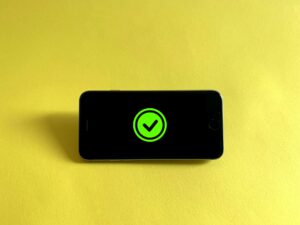Suggestions for How to Select an External Hard Drive That You Can Count On

Suggestions for How to Select an External Hard Drive That You Can Count On
When it comes to storing information, generating backups, and transferring big quantities of data, one of the most practical methods is to use an external hard drive. On the other hand, the process of selecting the most suitable alternative might seem daunting due to the fact that there are so many possibilities. Whether or whether a drive will be able to serve you well over time is mostly determined by factors like as compatibility, storage capacity, speed, and durability. The following are some important suggestions to assist you in choosing an external hard drive that is dependable and satisfies your requirements.
Assess your requirements for storage space.
It is important to take into consideration what you want to utilize the drive for most of the time before you make a purchase. If you merely want backup for your images and documents, a lesser capacity may be adequate for your needs. However, if you are storing huge project files, films, or whole system backups, you should choose a disk with a greater capacity. The need for periodic updates may be avoided by planning in advance.
Familiarize yourself with the differences between an HDD and an SSD.
Solid-state drives (SSDs) and classic hard disk drives (HDDs) are the two primary categories that make up the world of external hard drives. HDDs are more cheap and provide bigger capacity, but they are slower and more prone to physical damage. Because they do not have any moving components, solid-state drives (SSDs) are more durable, quieter, and quicker than traditional hard drives. However, they also tend to be more expensive per gigabyte. Make your decision depending on whether you are more concerned with speed or cost-effectiveness.
Examine the Speed of Data Transfer
When you often transmit files that are enormous, speed is essential. Be on the lookout for drives that are compatible with interfaces that are capable of higher data transfer speeds, such as Thunderbolt, USB 3.0, or USB 3.2. Solid-state drives (SSDs) are inherently capable of transferring data at a greater speed than hard disk drives (HDDs), but HDDs that are equipped with current connections are capable of performing well enough for routine activities.
Take Both Portability and Design into Consideration
Select a drive that is lightweight, small, and robust if you are going to need to take it about on a regular basis. Some variants also have shockproof, water-resistant, or dustproof enclosures that are ruggedized. When it comes to items that are intended to be used in a fixed manner, mobility is always a desirable feature, even if appearance may not be as important.
Give precedence to durability and dependability.
An external hard disk that is dependable need to be able to survive daily usage without experiencing frequent failures. Drives that are well-built, have effective heat management, and are encased in protective enclosures are more likely to have a longer lifespan. You may be able to avoid drives that are renowned for having short lifespans by reading reviews and checking dependability ratings.
Confirm that Your Devices Are Compatible with the Software
Make sure that the drive is compatible with the operating system that you are using before you make a purchase. Although the majority of drives are compatible with both Windows and macOS, there are certain drives that may need formatting. If you want to use it with a variety of different devices, it might be wise to consider purchasing a drive that enables cross-platform use right out of the box.
Assess the Security Characteristics
Built-in security measures like password protection or hardware encryption are very beneficial when it comes to protecting sensitive data. In the event that your drive is stolen or misplaced, they will offer you with piece of mind and assist prevent unwanted access.
Examine the warranty and the reputation of the manufacturer
The fact that a manufacturer provides a more extensive warranty term is sometimes seen as an indication that the manufacturer is confident in the drive’s longevity. When compared to lesser-known manufacturers, well-known brands usually provide better customer service and more dependable hardware, which lowers the likelihood of data loss due to problems occurring early on.
Do Not Disregard the Price-to-Performance Ratio
It might be tempting to choose the one that is the least expensive, but dependability should always be the top priority. If you spend a little more money on a drive that has a higher grade of construction, quicker speeds, or more robust durability characteristics, you may be able to avoid having to spend a lot of money on data recovery attempts in the future.
When it comes to selecting a dependable external hard drive, the factors that need to be taken into account are the drive’s speed, capacity, durability, and cost. Give serious consideration to the ways in which you want to use it, and make sure to emphasize characteristics that are in accordance with your own individual requirements. When it comes to choosing the ideal storage solution for your needs, it is important to make an educated selection. This is because your information will be protected and accessible for many years to come if you make the right choice, whether that means selecting a tough portable drive for travel or a high-capacity solution for backups at home.




